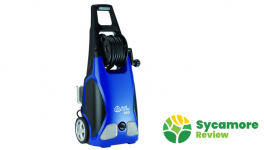ANZEIGE
Essential tips for comparing pressure washers for home use
When you consider different pressure washer models from a few manufacturers, the price is one of the most significant factors for your buying decisions. Price ranges vary depending on types, functionality, and water pressure. To know what is the best pressure washer to buy, shoppers also need to identify how light or heavy their workload will be. After shortlisting a few Good pressure washer brands

1. Pressure and flow rate
PSI (pounds per square inch) and GPM (gallons per minute) are two key indicators that dictate the cleaning power of your machine. While PSI tells you how much cleaning pressure your device can produce, GPM shows you the water volume. It is important to note that buyers should always take into consideration both PSI and GPM.
Once you have PSI and GPM, multiply the PSI by the GPM to calculate the CU (Cleaning Unit). For example, a pressure washer with 1,400 PSI, and 1.4 GPM of flow produces 1,960 CUs. The term CU helps you understand the power of flow (which is the GPM) and the pressure (which is the PSI) combined. Put differently, CU indicates how efficient your pressure washer work (or its performance).
CU is a helpful term to compare different models. For small light-duty tasks like vehicle washing, 2,000 to 2,800 CUs are enough. If you want to clean sidings, decks, or other small jobs around the house, pick a machine that can produce about 3,500 to 4,500 CUs. For driveways and other medium-duty tasks, you probably need 5,000 to 7,000 CUs. Those machines that can produce higher than 7,000 CUs are uniquely designed for heavy-duty or commercial purposes. Most shoppers who are looking for best home pressure washers would need CUs for only light or medium duties.
2. Nozzles and attachments
Some models are packaged with an all-in-one adjustable nozzle so you can change the angle and adjust the force of your spray gun. Others provide a set of five interchangeable nozzles that wil; fit with different cleaning needs, from light to heavy. In almost all cases, your pressure washer often includes a pinpoint spray, a turbo nozzle, and a wide fan nozzle.
≫≫≫≫≫≫≫≫ ≫≫≫≫≫≫≫≫≫≫≫ ≫≫≫≫≫≫≫≫ ≫≫≫≫≫≫≫≫≫≫≫
✭✭✭ Find More Information:

Unlock the Power: The Best Pressure Washers Reviewed
≫≫≫≫≫≫≫≫ ≫≫≫≫≫≫≫≫≫≫≫ ≫≫≫≫≫≫≫≫ ≫≫≫≫≫≫≫≫≫≫≫
3. Hose length
The longer your hose length is, the easier it is to move around. In other words, if your hose is 35-feet long, then your machine’s maneuverability is excellent. However, if you are using an electric-powered pressure washer, avoid using an extension wand as you might get electrocuted.
4. Portability
How portable your device is will largely depend on how much it weighs. Most electricity-powered machines’ weight is between 10 to 50 pounds. So if you are looking for a good pressure washer for home use, then we recommend you to go with an electric pressure washer, as gas models are heavy and bulky.
5. Detergent Tank
Most manufacturers inject in their device the detergent tank to increase the cleaning power. To apply detergent for electric models, remember to attach the black nozzle to the spray gun to ensure your safety.
The bottom line
The Highest rated pressure washers

Zuletzt bearbeitet:

